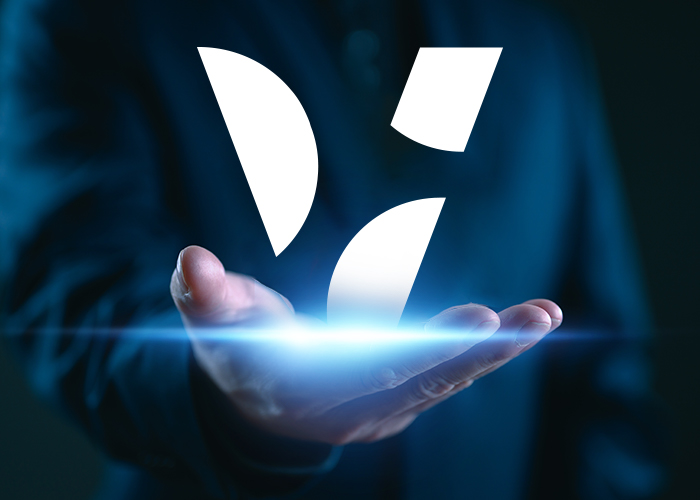Revolution in the Investment World: Tokenization
With the digital age, the traditional financial world is undergoing a significant transformation. One of the pioneers of this transformation is “tokenization,” the process of converting assets into digital tokens. Tokenization is radically changing the investment world and offering new opportunities for investors. This article will explore what tokenization is, how it works, and the advantages it particularly offers to investors.
Democratization of Investment: Accessibility through Tokenization
In traditional investment methods, investing in high-cost assets like artworks, shopping malls, or valuable real estate usually requires significant capital. However, tokenization is changing this scenario. Now, you can be part of major investments that were financially out of reach. Everyone’s income and investment sizes differ, but tokenization eliminates these disparities, offering every investor the chance to own a piece of an asset within their budget. Through the tokenization process, the value of an asset is divided into digital tokens, and these tokens represent a part of the asset. For example, consider an artwork that has been tokenized. Token holders can earn income based on the copyright revenues of the artwork proportional to the number of tokens they hold. Similarly, you can co-own a percentage of the rent revenues from a tokenized shopping mall based on the share you purchase. This means not only large investors but also small investors can benefit from the returns of large assets.
Investment Opportunities for All: A New Era with Tokenization
Tokenization is creating revolutionary changes in the investment world. Traditional investment methods are typically designed for individuals or institutions with substantial capital. However, tokenization reverses these paradigms. Now, even ordinary investors can own a part of large assets and benefit from their returns. This new investment model opens the doors of major investments to everyone. In this section, we will delve deeper into the opportunities presented by tokenization. For example, investing in an artwork is an unreachable goal for most people. However, through tokenization, you can invest in a small part of these artworks and earn income from their copyright revenues. This model is applicable not only in the art world but also in real estate, technology, sports, and many other areas. Tokenization divides the returns of these assets into smaller portions, making it possible for investors to access these opportunities.
How Tokenization Works: Enabling Digital Ownership
Tokenization fundamentally means dividing an asset into digital parts. These parts are digital units called tokens, and each token represents a specific portion of the asset. Instead of buying an entire asset, you can buy a number of its tokens through tokenization. To better understand this process, consider a real estate property. Traditionally, purchasing this property would require significant capital. However, with tokenization, this property is digitally divided, and each part is represented as a token. Investors can buy these tokens to own a part of the property. This ownership is secured through blockchain technology, ensuring each token holder’s rights are transparently protected. Blockchain technology enables the secure storage and transfer of tokens. Each transaction is recorded on the blockchain, and these records are immutable. This provides a secure and transparent investment environment for token holders. Investors can earn income from the assets, such as rental income or copyright revenues, based on the tokens they own.
Accessibility of Investment: Opportunities for Everyone
Tokenization offers significant opportunities not only for large investors but also for small investors. In traditional investment methods, investing in large assets requires substantial capital. However, with tokenization, investors can co-own large assets with small amounts. This is a significant advantage, especially for new investors or those with limited capital. For example, when you buy a token of a tokenized shopping mall, you receive a share of its rental income. This share depends on the number of tokens you own and the value of the asset they represent. Similarly, when you invest in an artwork, you can earn a share of the income generated from its copyright revenues. These types of investments typically provide significant opportunities for small investors in areas that generally require large capital.

Advantages and Risks of Tokenization
The advantages of tokenization are attractive, but this investment model also carries some risks. First, one of the greatest advantages of tokenization is the accessibility of investments. Compared to traditional investments, tokens allow for investing in much smaller amounts. This enables more people to invest. Additionally, tokenization provides investors with more liquidity than traditional investment methods. Tokens can be easily bought and sold on the blockchain, allowing investors to quickly convert their investments into cash. However, there are some risks associated with tokenization. First, the complexity and novelty of blockchain technology can be difficult for many investors to understand. Moreover, the value of tokenized assets can be more volatile compared to traditional assets. This can create a risky situation for investors. Additionally, the legal status and regulatory frameworks of tokens are not yet fully established. This can create some uncertainties and pose risks for investors.
The Future of Tokenization: A New Era in the Investment World
Tokenization has the potential to create a major revolution in the investment world. This new investment model offers the opportunity to own small parts of large assets and benefit from their returns. Additionally, tokenization allows investors to make their assets more liquid and facilitates quick trading. The future of tokenization largely depends on the development of blockchain technology and the establishment of regulatory frameworks. However, current trends and technological advancements indicate that tokenization will become an increasingly common investment model. Both large and small investors can benefit from this new model and have a greater voice in the financial world. In the future, tokenization is expected to spread to more asset classes and reach a broader audience. Assets such as real estate, artworks, patents, copyrights, as well as shares of technology companies, and even sports teams could be tokenized. This will offer investors a much greater diversity of opportunities and options. Corporate investors can diversify their portfolios through tokenization and better manage their risks. Moreover, the increased liquidity of assets through tokens allows investors to buy and sell their assets more quickly and easily. Future of Tokenization: New Opportunities and Potentials The future of tokenization looks very promising. Today, a wide variety of asset classes from artworks to real estate, technological patents to sports teams, are being tokenized. However, this is just the beginning. In the future, more asset classes are expected to be included in the tokenization process and reach a wider audience. Especially with the development of blockchain technology and the establishment of regulatory frameworks, tokenization is likely to play a larger role in the investment world. Blockchain secures the storage and transfer of tokens. This creates a secure and transparent investment environment for investors. Additionally, transactions on tokenized assets can be carried out in a decentralized and reliable manner using blockchain technology. In the future, tokenization is expected to be applied not only to financial assets but also to physical assets, services, and even human capital. For example, a technology company could tokenize the skills of its employees and offer these tokens to investors to invest in the company’s future success. Similarly, a sports club could offer its fans the opportunity to share in the club’s successes. The potential of tokenization will create new opportunities and innovations in the investment world. This process will enable investors to choose from a wider variety of options and further facilitate risk management. Additionally, through tokenization, investors will be able to make their assets more liquid and manage their investments more flexibly.
In conclusion, Tokenization as the Future Investment Model In conclusion, tokenization is a model with the potential to create a major revolution in the investment world. This innovative model offers the opportunity to invest in small parts of large assets, providing investors with access to a broader range of assets. Additionally, through tokens, investors can make their assets more liquid and facilitate quick trading. In the future, tokenization is expected to become more widespread and play a larger role in the investment world. This process will offer significant opportunities not only for large investors but also for small investors. Tokenization will empower investors to have more influence in the financial world and initiate a new era in the investment landscape. The opportunities offered by tokenization hold great potential for investors. This new investment model democratizes the financial world, enabling investors of all income levels to co-own large assets. This means more diversity and opportunities in the investment world. As the future investment model, tokenization will meet investors’ expectations and provide a safer, more transparent, and accessible investment environment. Tokenization is ready to create a revolutionary change in the financial world, and this change will open the door to new and exciting opportunities for investors.







